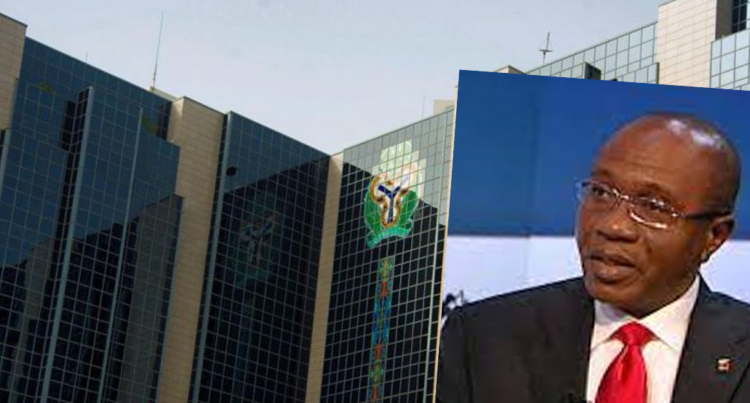Two months after the Central Bank of Nigeria (CBN) introduced the DollarforNaira policy, economists and financial experts say its impact is yet to be felt as the dollar to naira exchange rate remains high as a result of non-availability of foreign exchange.
They also said to increase foreign exchange liquidity, the country will need to do much more than incentivising diaspora remittances.
In March, the CBN started a campaign to shore up foreign exchange remittances to the country with the introduction of a NairaforDollar policy.
Under the policy, which was to last for two months from March 8 to May 8 2021, the CBN was to pay N5 for every $1 sent through its licensed International Money Transfer Operators (IMTO).
The CBN had in a circular announcing the policy, said it was in furtherance of efforts to encourage increase in inflows of diaspora remittances. It said the incentive would be paid whether recipients chose to collect the forex as cash across the counter in a bank or transfer same into their domiciliary account.
CBN Governor Godwin Emefiele had expressed optimism that the programme would achieve its aim of increasing diaspora inflows.
Consequently, since March 8 when the programme started, all recipients of diaspora remittances have received N5 on every dollar received.
Experts, however, said it would take more than incentives to make a difference.
An economist, Dr Chiichii Ashwe, said the most potent way of improving forex liquidity is to produce more domestically and cut down on imports.
He said while the policy looks good on the surface, the practical implications and the question of whether it will have a meaningful impact would only be determined if most transfers come in through the CBN IMTOs.
Similarly, Forensic Accountant and Chartered Stockbroker, Mathew Ogagavworia, said though the CBN had yet to release data on what had been achieved, beyond the policy, it was important to factor in other things that could have made the diaspora remittances increase within the two month period such as coinciding with when people typically send money home.
He described the policy as “one of the CBN’s cosmetic actions to shore up the naira.”
“Theoretically, it is meant to boost the economy. Instead of bringing in money through unofficial channels, people will now do so officially. Before now, people who wanted to send money to people would use other back channels but now, knowing that the people they’re sending money to will be paid some extra money, they may be willing but again, it is also about whether people have money to send home.
“The economies of those countries these funds are expected from are also suffering and people may not have excess money to send home,” he said.
Ogagavworia said a more sustainable approach to increase the country’s forex liquidity was to increase productivity and export to earn forex.
“If there are products foreigners can buy from Nigeria, each time they buy, we earn forex. Now, we don’t produce, we import everything, including ATM cards and toothpick. We import plastic all over the world even though we produce here. All the paper we use in Nigeria is imported.
“At individual level, people may have dollars but what you need for import is what the government has in its foreign reserve ratio. Nigeria as a country must earn more foreign exchange to make access to forex easier,” he said.
A Kano-based business man who spoke on the condition on anonymity, said even though he had no objection to the Naira4Dollar policy, it had not quite helped the system as its effect was yet to be felt in practical terms.
He said increased forex liquidity ought to have crashed the naira to dollar exchange rate but the price of dollar was still high, exchanging at N480-N490.
“What they are doing now has not helped the situation. Even though people are now more encouraged to send money through the official channels, the amount of foreign exchange in the system has not increased,” he said.
The businessman further said what was more sustainable was for the CBN to encourage and incentivise exports.
“Give people incentives to export and earn forex remittances. We need the CBN to influence a system that will bring in hundreds of thousands or millions of dollars, not the current policy that sees individuals sending in $2000 to $5000 so that their relatives receiving it can earn a little money on it.
“The policy of cap on inflows whereby you can only use inflows to make payments for goods and services abroad is also hurting the system because those who have the inflows are charging exorbitantly for it. This is not helping businesses at all,” he added.
The CBN on May 6, announced an indefinite extension of the policy, maintaining all aspects of the operationalisation of the programme.
In a reaction to the development, President, Association of Capital Market Academics of Nigeria, Prof. Uche Uwaleke, while pointing out that the objective of the policy was to reduce the cost of remittances which should act as an incentive to increase the Diaspora remittance and in turn reduce the pressure in the forex market, narrow the gap between the AFEX rate and parallel market rates and ultimately lead to appreciation of the naira, queried the extent to which that had been achieved.
“It is only a high success rate that can justify the indefinite extension of the naira for dollar scheme against the backdrop of the fact that it is being implemented at a huge cost to the CBN with a balance sheet that is already stretched. On the surface, it is a welcome development. But as I said earlier, the CBN should provide the public with information on the performance of the scheme,” Uwaleke added.









